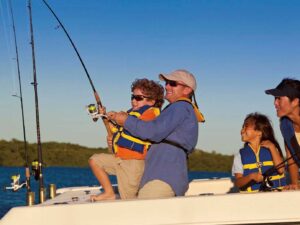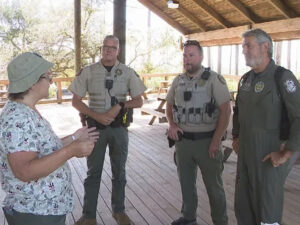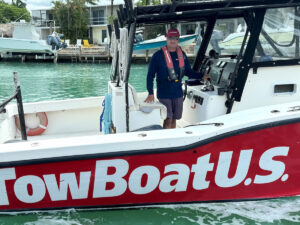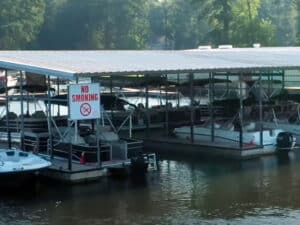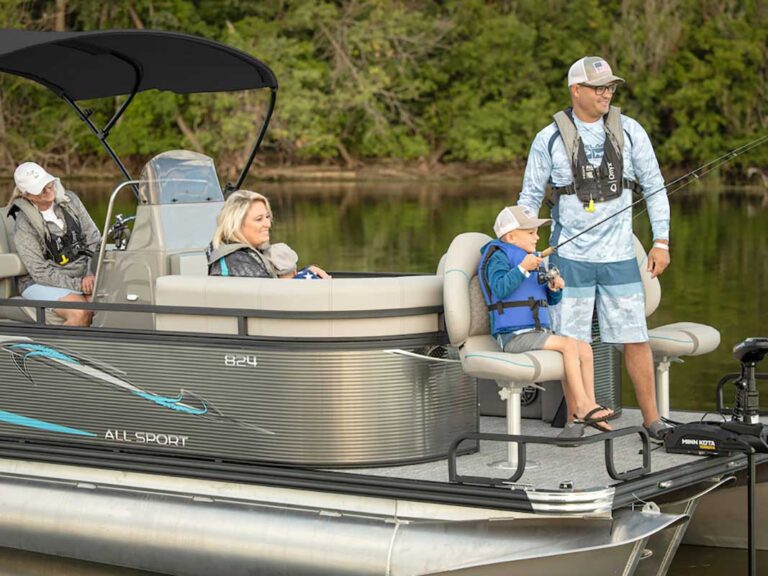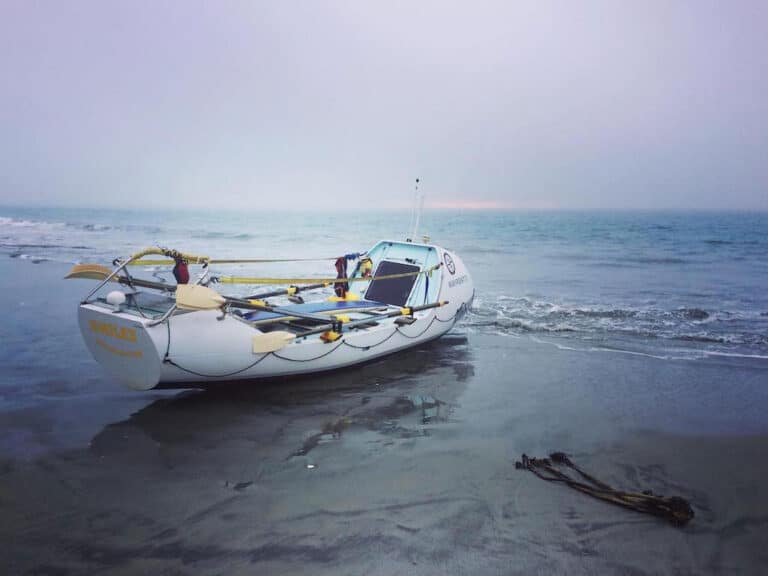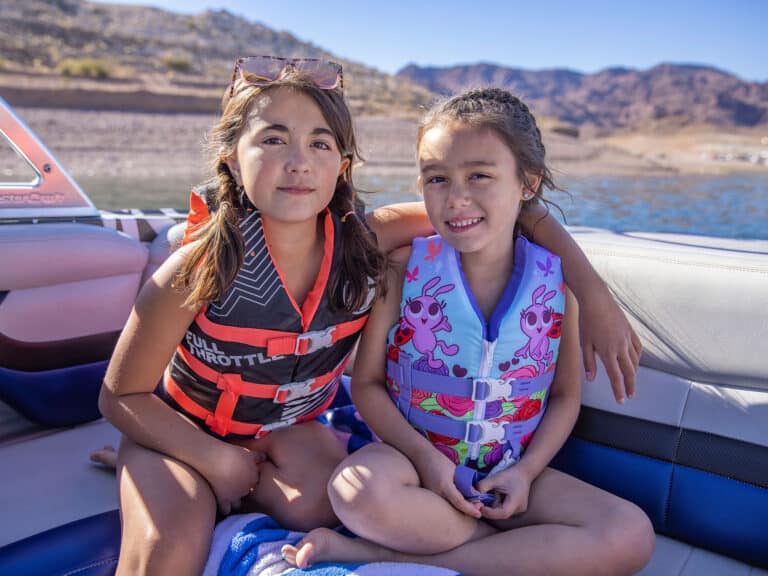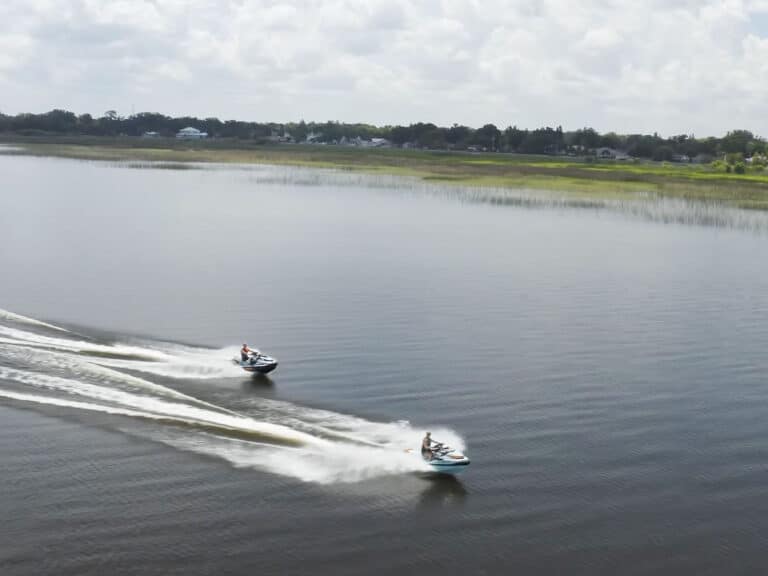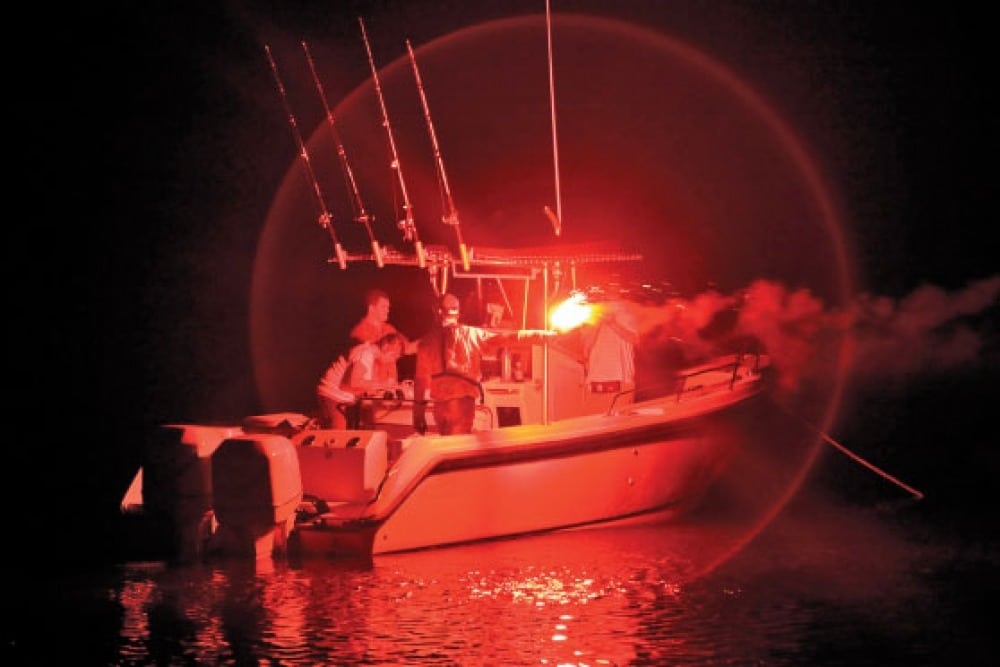
Safety isn’t sexy. Anglers never clamor over the latest color in a personal-flotation device. Boaters don’t compete to see who’s first to use digital selective calling. I mean, do you ever show off your EPIRB?
Yet, just like a seemingly calm dog can turn vicious, so too can the ocean grow violent. Not that we should fear all pups or trips offshore, but don’t be naive or choose ignorance.
Case in point: the use of cell phones versus VHF radios for distress calls.
Boaters and anglers “have too much faith in [cell phones] as the sole means of communication on the water, especially in emergency situations,” U.S. Coast Guard Petty Officer First-Class John D. Miller writes in a recent press release, chronicling the death of a headboat owner whose vessel sunk in the Delaware Bay two years ago. That boater waited too late to call for help on his VHF radio. He finally reached out to authorities — on his cell phone — as the vessel foundered in 37‑degree water.
The delay created as the call and the key information passed through an intermediary might have contributed to the man’s drowning.
The Downside
Cell phones seem capable of anything these days, and with access to navigational and weather apps, they can put real-time, valuable information in the hands of anglers on the water. But cell phones have definite drawbacks.
Unless protected by a waterproof case, they fail when they become wet. They lose their signal in certain locations, and they are no help in contacting nearby boaters unless you happen to know the phone number of someone aboard.
And while many cell phones might contain GPS, they don’t automatically transmit a position to rescuers. Nor is tracking a phone as simple as punching in a number and finding a signal on a map — as some popular television crime shows might suggest.
In fact, locating a cell signal can be very involved, Miller writes. “We don’t have that capability in our command centers, and that information is not easily obtainable from the cell phone companies — if they do have it — because of privacy concerns. All this research takes time, and during this process, things are happening on the water.”
At one time, the Coast Guard did promote the use of a *CG shortcut on cell phones to hail search and rescue. But in 2006, the agency asked all providers (except those in Alaska) to discontinue the feature — which had never become universally accepted — and it began encouraging VHF use
At the same time, the Coast Guard was ramping up its Rescue 21 system, which uses direction-finding equipment to generate lines of bearing to the source of VHF distress signals.
DSC Equation
A quick Coast Guard audit of easily accessible information shows that in 2012, among 19,787 distress calls received, about 18 percent came from cell phones. Almost 30 percent came from radios; the rest — more than half — came from land-line telephones. (Coast Guard caveat: Miscoding might occur between cell and land-line notification.)
Assuming that the estimated 48 percent total that’s referenced above originated on the water, then about 38 percent of all distress calls from the water were placed by cell phones.
“The Coast Guard is really pushing this issue,” says Jason Kennedy, executive vice president for Standard Horizon, which makes marine electronics including VHF radios. “They want more people using radios.”
But as yet, there’s no federal mandate for all recreational boaters to carry VHFs. Some see that as an impending necessity and have rallied for that cause. Others feel it represents yet another regulation and cost for overburdened leisure seekers. “It’s definitely something we strongly encourage people to have on board, but I don’t think there’s anything currently being talked about,” with regard to a regulation, says Coast Guard recreational boating-safety specialist Michael Baron.
However, by law, all newly manufactured VHFs must have a digital selective-calling function, which alerts the Coast Guard and other nearby boaters to a vessel in distress. But fewer than 10 percent of boaters have properly wired their VHFs to an onboard plotter so that its DSC button transmits a position. A great number of boaters also fail to obtain a Maritime Mobile Service Identity number, which helps the Coast Guard identify you and your boat, and is necessary to even use the DSC function to hail other vessels.
To help, BoatU.S. offers online assistance (boatus.com/mmsi) for registering, and describes all the functions of DSC through tutorials. The Coast Guard’s website (visit uscg.mil and search “MMSI”) also offers a DSC PowerPoint presentation and a downloadable brochure on MMSI.
Easy Alternative
New VHF handhelds from Standard (HX851, $269) and ICOM (M92D, $299), and a fixed-mount unit (GX1700, $229) from Standard already come with integral GPS. (Simrad and Lowrance debuted similar handhelds at press time.) Boaters don’t need to connect these units to a plotter to transmit their location when using emergency DSC.
Non-GPS handhelds cost $100 to $200; basic fixed mounts start in that range as well, but require an antenna. Either costs less than most cell phones.
“The bottom line is that the Coast Guard reminds boaters that a cell phone shouldn’t be a substitute for VHF. If they have a radio, it should have DSC capabilities and be properly registered, and they should consider some sort of emergency-locater beacon,” Baron says. “Accidents can happen quickly on the water; having layered communications leads to a higher probability that they will be saved.”
* * * * *
The U.S. Coast Guard is asking all boat owners and operators to help reduce fatalities, injuries, property damage, and associated healthcare costs related to recreational boating accidents by taking personal responsibility for their own safety and the safety of their passengers. Essential steps include: wearing a life jacket at all times and requiring passengers to do the same; never boating under the influence (BUI); successfully completing a boating safety course; and getting a Vessel Safety Check (VSC) annually from local U.S. Coast Guard Auxiliary, United States Power Squadrons(r), or your state boating agency’s Vessel Examiners. The U.S. Coast Guard reminds all boaters to “Boat Responsibly!” For more tips on boating safety, visit www.uscgboating.org.

